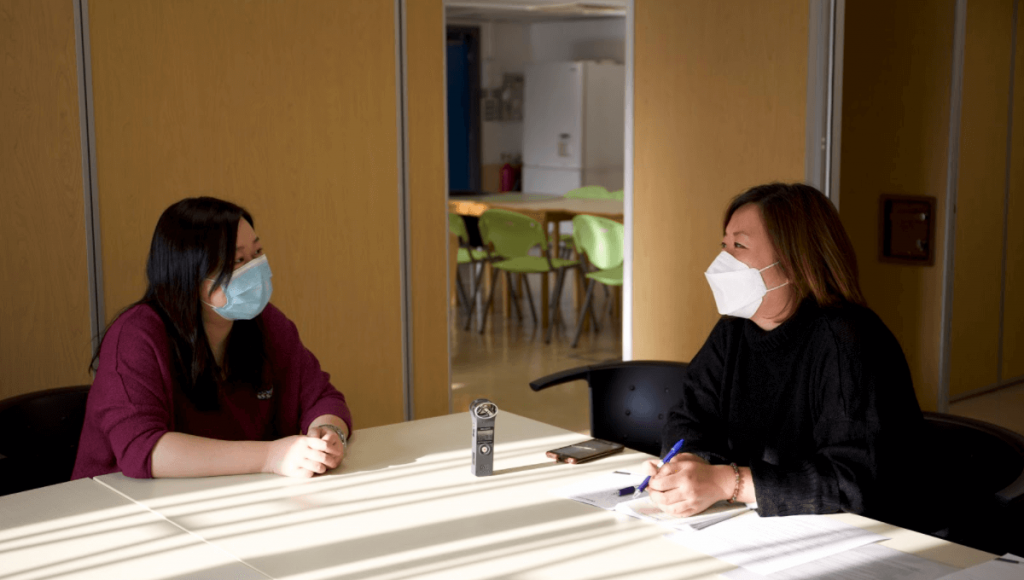Aubrey Kwan (left), a teacher from Hong Kong, recounts her experience using Study Skills Success.
By June 2020, schools in Hong Kong had had almost six months of online classes. With further disruptions expected in the next academic year, teachers at Shung Tak Catholic English College, a secondary school in Hong Kong, were looking for new ways to engage their students remotely. The focus: teaching final year students the necessary study skills for their final exams and their future university careers.
In particular, Aubrey Kwan, a teacher of the school, wanted two key features in an online study skills program: engaging and authentic content, and easy accessibility (to minimise impact to students’ learning amidst changes to remote learning). After a short and speedy search, trial, and setup in June 2020, Ms Kwan began using Study Skills Success (SSS), ClarityEnglish’s comprehensive course in academic study skills. Now, having used SSS for almost a year, Ms Kwan has told us some key takeaways from her experience.
Familiarisation
Just as Ms Kwan had gone through a familiarisation process through her trial and use of the teacher’s guide, she wanted her students to have the same confidence in using the program. Preparation took two steps. First, summer prep. The soon-to-be final year students started the groundwork for the next academic year over the summer holidays. The task was not strenuous — they simply needed to familiarise themselves with the program by completing one exercise from each unit by the end of the holiday. The hope was, by the time they returned to school, the students would feel comfortable enough with the program to start doing weekly exercises in term time.
Once term began, students then underwent a more formal familiarisation. One in-class introductory session was run to allow students to explore the program together and ask questions. Instead of opting to do this in a computer lab, Ms Kwan recalled how she asked her students to take out their mobile phones and try an exercise right there and then. She said she wanted to show the students they could truly use the program anytime and anywhere.
Part of the curriculum
The most notable part of Shung Tak Catholic English College’s use of SSS was how they incorporated it into their curriculum. Previously, students had to seek out their own English materials to study and analyse every week (such as TEDTalks, newspapers, online articles). With SSS, the variety of text types and exercises is readily available and fits into the class content. For example, when students were due to give presentations, Ms Kwan would get the students to complete the SSS Speaking unit to improve their presentation skills. Or, prior to the mock and final exams, the students were tasked to complete the Independent learning and Research units of the program.
What’s more, the school also attached the program usage to the student’s end-of-year report card. Despite not affecting their grades or results, as their final exams would, it noted their progress through the program and completion rate of tasks. On the whole, Ms Kwan said incorporating SSS into the curriculum allowed students to engage more closely with the content, as with any homework that is meant to help them.
Student outcomes
As expected, enthusiasm for the weekly work varied within the class. On one end of the spectrum, there were students that struggled to keep up with the work. For these students, teachers were able to keep an eye on progress and check in with them through ClarityEnglish’s Admin Panel usage reports. On the other end of the spectrum, the highly engaged and self-motivated students would do extra work, note down their curiosities and bring them to class. These questions would, in turn, become a class discussion for the whole group to think about and learn from.
Final thoughts
Ms Kwan’s final piece of advice to others was to ‘make sure your students’ ability is high enough to engage with the program. Otherwise, it may be too challenging and they will struggle and be demotivated.’ She would say the appropriate level is students who are comfortable with a natural use of English.

